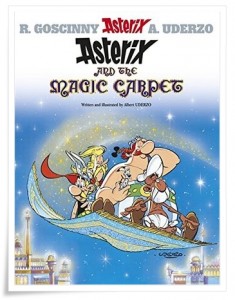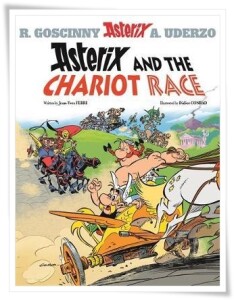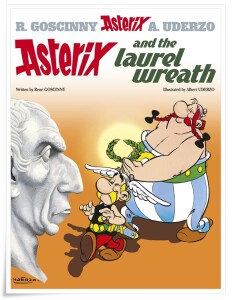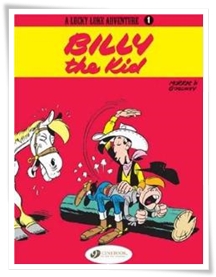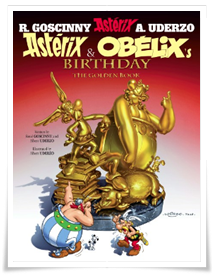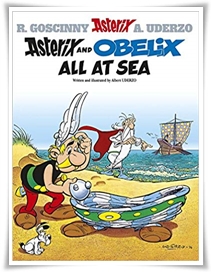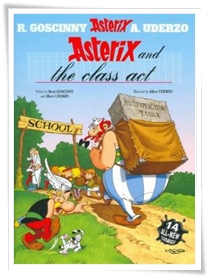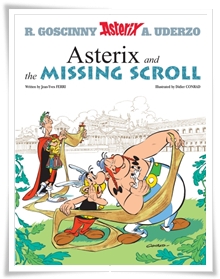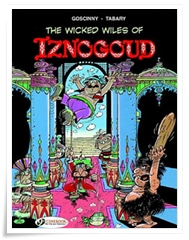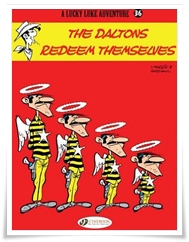Asterix and the Magic Carpet
by Albert Uderzo; trans. Anthea Bell & Derek Hockridge (Hodder, 1988)
A breezy if inconsequential adventure. Uderzo sends his heroes on a tour of the ancient world and depicts India for the first time, his illustrations proving less cluttered and less exotically Eastern than those of Jean Tabary’s Iznogoud (which gets a shout-out).

